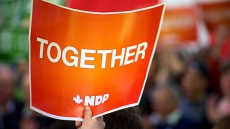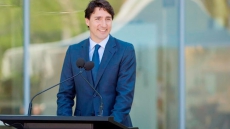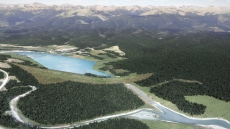VANCOUVER — A scrawny snowpack and a forecast of warmer-than-normal conditions has officials in British Columbia urging residents to use extra caution in preventing forest fires this summer.
Eric Meyer of the BC Wildfire Service said fire conditions could become "very volatile" by the July long weekend as rains fizzle.
"It's definitely going to start drying out," Meyer said Thursday during a conference call to discuss the snow pack and fire situation across B.C.
"We're asking the public to be very cautious with any activities in the forest because it won't take much for a fire to get up and started and take off on them."
Larger-than-average wildfires have consumed six times more land than normal in British Columbia so far this year, despite the actual number of blazes being no greater than usual, he said.
Dave Campbell of the River Forecast Centre said the snow pack across the province is less than 15 per cent of its typical level for this time of year because of an unseasonably hot and dry early spring, which stretched from late March through to early May.
"As of about the middle of May things have cooled down a bit and gotten more seasonal, and we've also gotten a few wet cycles as well," Campbell said.

He linked the waning of El Nino over the past month with the return to more seasonable temperatures for this time of year.
But the anticipated transition into La Nina isn't expected to bring significantly cooler and wetter conditions until the fall, Campbell added.
As for river water levels, he said flows across the province at between a quarter and three-quarters of what is normal for this time of year.
Environment Canada is predicting a hot summer, though precipitation remains an unknown factor, Campbell said.
Valerie Cameron, a water stewardship manager with the forests ministry, described last year as "the most significant drought in recent memory."
She said the province may have to enact some measures in the Water Regulation Act if conditions deteriorate beyond 2015 levels.
"We're hoping for a better year than we had last year but we're preparing for the worst," Cameron said.




